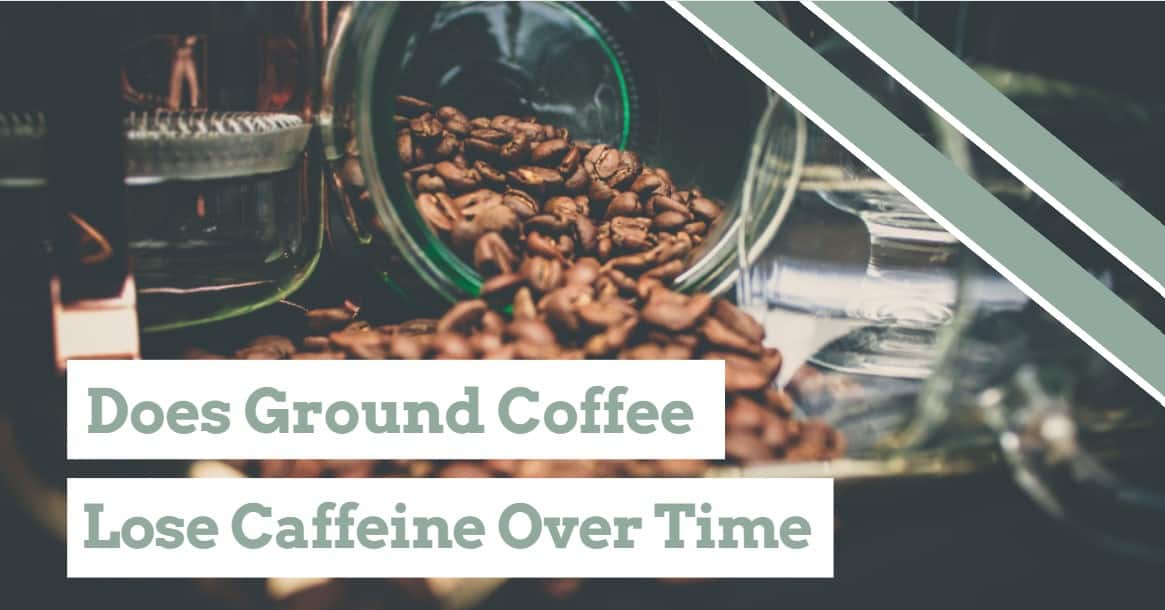As I rush to get my first cup of coffee in the morning, I’m overcome with a sense of relief when I take my first sip. I know this is only in my head because the caffeine from the coffee hasn’t even hit my stomach yet.
We enjoy coffee from the first sip each day, but how long does it take for caffeine to hit our bloodstreams and start feeling the effect of our coffee?
It turns out it takes anywhere from 30 to 40 minutes for the caffeine from the coffee to incorporate into the bloodstream fully; you can begin to feel its uplifting effects after just 10 minutes!
How long caffeine lasts in your system is also interesting; we’ll get into that below.
So, Why Does It Take So Long for Coffee to Kick In?

First off, it really doesn’t.
Like I mentioned above, it may take anywhere from 30 to 40 minutes to get fully into your system, but as little as 10 minutes to start feeling the effect.
It also depends on the type of drink you’re having.
One standard 8oz cup of coffee is going to take longer than a double shot Americano.
Espresso is exactly the same as regular coffee, except that it becomes incredibly concentrated with its unique brewing process. That espresso kickstarts my heart if I even look in its direction.
It also depends on how quickly you consume it. Throwing back a 12oz coffee all in one chug is going to shock your system much more intensely than a casual eight ouncer.
On average, it takes roughly 45 minutes for caffeine to dilute into your bloodstream fully.
Coffee isn’t the only way to get caffeine.
Caffeine tablets, for example, may take over an hour to respond with full effects.
Caffeine is a stimulant that ignites your central nervous system. If you want to get really specific, it can be considered a drug. It gives your noggin a little encouragement to put some pep in that step.
It will provide you with increased, yet temporary, mental alertness.
What Does Caffeine Do?

Ever wonder why your body starts craving a nap around lunchtime? Neuro sensors called “adenosine” acclimate throughout the day, causing drowsiness and low energy.
Caffeine attaches to these sensors, effectively blocking their effects, causing improved cognitive thought and energy.
While some neuro sensors become blocked, others experience increased activity due to caffeine, like Dopamine and Norepinephrine. Both act as a messenger to deliver feelings, sensations, and emotions to the brain. Norepinephrine helps regulate stress levels.
They are the reasons you experience such a euphoric feeling when drinking coffee. These combinations and reactions are literally making your body feel happy on a chemical level. Depending on the sport, caffeine is regarded as a performance-enhancing drug.
Athletes may only have access to a set amount to avoid disqualification.
Some scientists claim that it should technically be classified as a psychoactive drug due to its direct effects on the brain.
Caffeine not only pushes your nervous system but cranks up your adrenal glands to eleven, causing the extra production of adrenaline which skyrockets your energy.
Although caffeine is most popular in drinks such as tea and coffee (and the most prominent), it’s naturally developed in a roster of produce items such as dark chocolate and certain types of berries.
How Long Will Caffeine Remain in Your System?
Well, there isn’t a universal answer to this question.
Science tells us that caffeine has a half-life anywhere between 3 to 5 hours.
Besides being an amazing video game, the “half-life” of a chemical refers to the length of time it takes for half of its effects to wear off.
For example, say your coffee contains 20 milligrams and holds a half-life of 5 hours. After 5 hours, you will have 10 milligrams of caffeine coursing through your bloodstream. Although most of the caffeine effects will be depleted, you’ll still feel the remnant pull of the caffeine.
But this is the blunt science behind it, and everybody reacts differently to things.

Another way of looking at it. I love a PB&J sandwich, but if my brother were even in the same room as a peanut, his airways would start to close.
Caffeine is the same in the aspect that people respond differently to its effects. These tolerances can be natural but sometimes build and solidify over years of consistent consumption.
It just depends on how sensitive you are to caffeine. As stated before, it takes roughly 45 minutes to get that jet fuel fully racing through those veins, but certain folks might already feel its full encouragement after only 30 minutes.
However, the other “half” of the half-life’s effects may continue for hours, while some folks have been known to feel its residual effects for days after initial consumption.
Even decaf coffee can be too much for people with severe enough sensitivity.
Decaf usually still retains a bit of caffeine, up to 7 milligrams per 8oz cup. This pales in comparison against regular coffee, but this proves quite problematic for folks with unusually high sensitivity.
Due to this lengthy and sometimes unpredictable duration, it’s recommended to avoid drinking java as much as 6 hours before bedtime. This gives all the effects of the caffeine a chance to tame down, although you might experience the mild diuretic effect caffeine provides, which means a few extra trips to the bathroom.
The Good, The Bad, and the Caffeinated
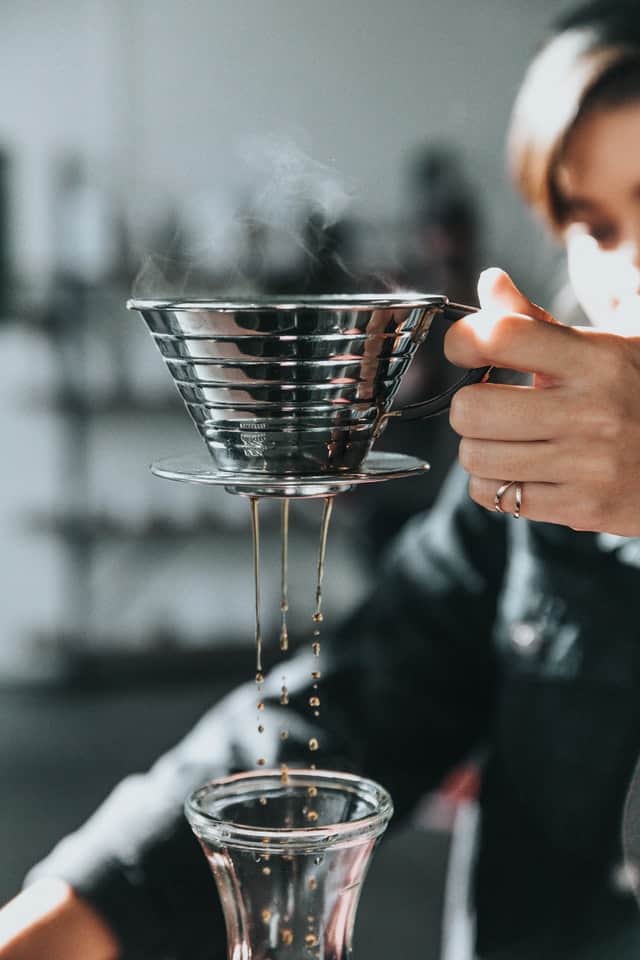
For coffee lovers, this beloved beverage has become the cornerstone of foggy morning rituals. For some, it’s the very first thing they do when stumbling from the comforts of bed (myfriendscoffee).
But with all this crazy consumption, is this bad for our bodies? Well, kind of.
Sometimes the problem may lie within the tolerance one can build over years of chronic consumption.
Remember, caffeine is technically a drug, and like every drug, it can be addictive and damaging if not handled responsibly. If coffee (or caffeine) is abused, your body becomes increasingly resistant to its effects, requiring more and more to get the job done.
But not only does your tolerance playoff how much you consume but also when you consume.
Studies have shown that it’s best to wait a full hour after waking up before indulging in your first (of many) cup of joe of the day. Throwing back coffee first thing in the morning disrupts your Circadian Rhythm.
This phrase describes the internal clock by which your body abides. It’s the process that regulates your wake-up/sleep schedule by releasing melatonin at night for sleepiness and dopamine in the morning to help wake the noggin. Essentially, it’s the reason why jetlag occurs when traveling to different time zones. (People who work nights usually experience this cycle in reverse).
If you wake up and the first thing you do is go for that pot of coffee, you’re doing this natural process a disservice. The caffeine suppresses the naturally produced chemicals’ production and prevents them from waking you up, rather depending on the caffeine as an artificial crutch.
Eventually, it can train your body to stop producing these chemicals altogether, requiring more and more caffeine to wake up every day. You effectively lose any natural alertness.
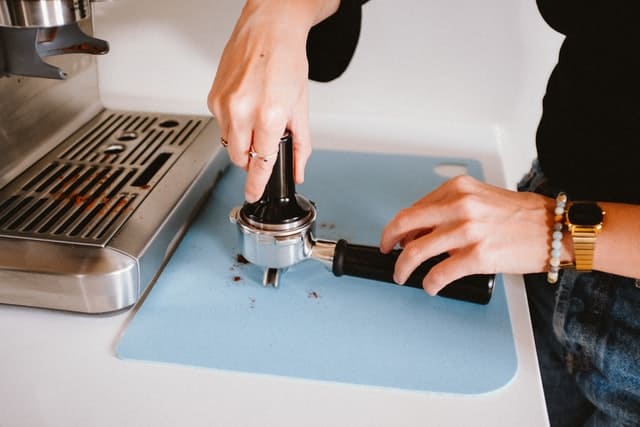
The opposite occurs when you drink coffee too late. It diminishes the melatonin provided by your body, keeping you awake with little sleep.
When your body relies solely on caffeine to start your engines, it can lead to fatigue, insomnia, irritability, and even withdrawal systems in severe cases.
But don’t let this freak you out. It falls under the “everything in moderation” umbrella. In fact, caffeine in proper moderations can provide beneficial attributes!
The increased alertness and cognitive abilities that caffeine gives improves brain functions and even helps prevent onset neural diseases such as Parkinson’s and Alzheimer’s.
Caffeine has also been known to aid in weight loss. Although this attribute is contested through the science community, caffeine has been known to help regulate your metabolism. Interestingly enough, it’s the main ingredient in a variety of dietary supplements.
It’s recommended to only consume 400 milligrams of caffeine a day to remain at a healthy dosage. With anywhere between 95 to 125mgs of caffeine per 8oz cup, that’s roughly four cups of delicious java per day. This is in line with how much coffee people typically drink in a day, according to Drift Away Coffee (driftaway.coffee).
Everyone is different, and the most important part is to listen to your body.
Caffeine from Bean to Bean
Generally speaking, different concentrations of caffeine can be difficult to notice. It depends on how specific you want to get.
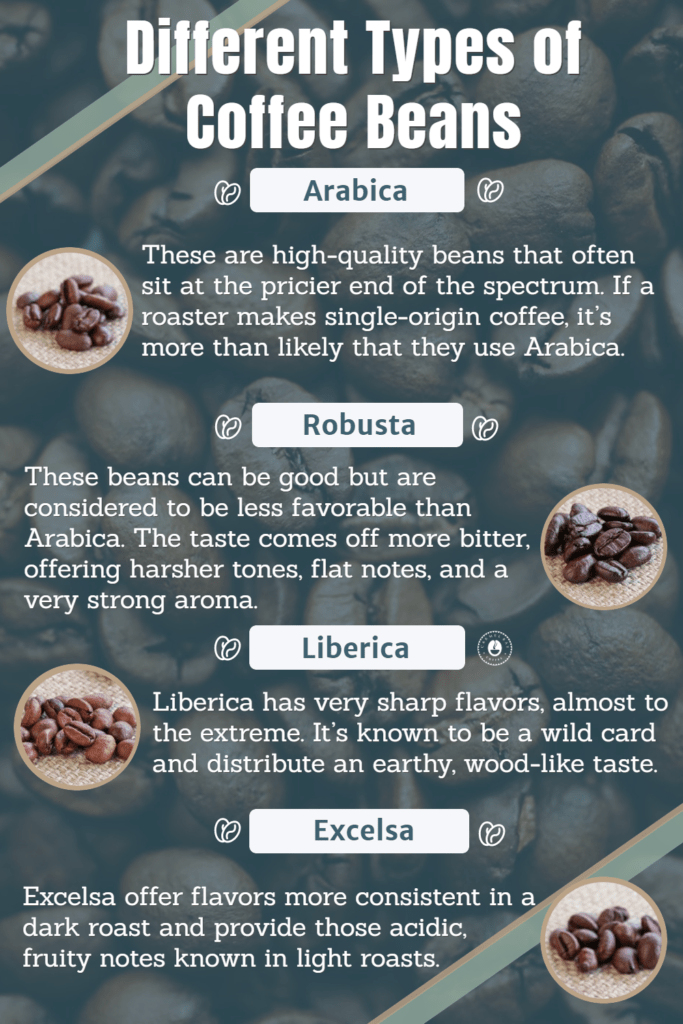
Check out our article, a guide to choosing the right coffee blend for you. We go over how to make the best blends and go more in detail about different coffee beans.
If you’re comparing quality by the bean, your front runner is the infamous Arabica beans. These delicious morsels are the cream of the crop. Although these delicate beans can be incredibly troublesome to cultivate, their superior flavor and aromas sell themselves.
But when it comes to the abundance of caffeine, Robusta beans are the clear winner. Although they don’t come with the quality and tastes that accompany arabica, these beans are much more packed with caffeine.
A coffee bean that escapes the attention of most is Green Coffee Beans. These are essentially raw coffee beans that skip the roasting process entirely. Since coffee beans lose a bit of caffeine while roasting, these green beans retain all of the caffeine that mother nature can muster. They tend to have a gamier flavor than your average bean.
But it’s not always about the specific bean, rather than its roasting profile when it comes to caffeine.
A bean roasting profile describes how long the bean has been roasted, ranging from light to dark roasts.
Dark roast coffee tends to lose quite a bit of caffeine during the longer roasting process, although the difference may go unnoticed.
No matter how long you roast a bean, it will never lose all its caffeine. Its flavors and aromas may evaporate, but that sweet rush we crave will always be the last man standing. Caffeine will remain long after all other properties have vanished or expired.
It’s a popular belief that espresso is the strongest type of coffee, which is partially true. There is no difference between regular coffee beans and espresso beans, and it’s simply the unique brewing process they undergo.
Per ounce, espresso has substantially more caffeine than regular coffee, given how concentrated it becomes.
But you drink more ounces of regular coffee per cup than you do with espresso. So while it’s true espresso contains more per ounce, you don’t really drink a whole 8-ounce cup of espresso.
How to Prolong the Effects of Caffeine
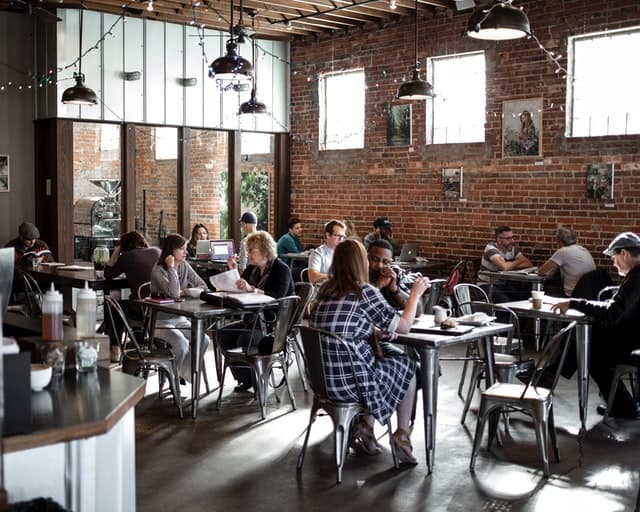
Coffee isn’t cheap, and if you’re anything like me, you want to get the most bang for your buck.
While too much coffee at once can diminish the positive effects it can provide, perfect regulation can provide you with every tiny ounce of energy that it can muster.
First off, don’t drink too much at once. It takes about 30 to 40 minutes for caffeine to incorporate into your bloodstream fully. So try to sip and enjoy that first cup while it works its magic. Waiting as long as you can to indulge in that second cup prevents the crash that a massive intake of caffeine will provide.
Always drink plenty of water! Caffeine is known to dehydrate, given its mild diuretic effect slightly. Dehydration will clash against the caffeine, causing soreness and fatigue. A cup of water between every cup of coffee is a perfect rule of thumb. We go into detail about this in our article here, will coffee dehydrate you?
Do you have sugar or sweetened creamers in your morning cup of coffee? Sugar can cause your body to come down in a good old-fashioned sugar crash!
You’ll still receive plenty of kick initially, but the sweetened additives will cause your body to “come down” much faster than it would on its own with black coffee.
Additionally, try not to drink coffee on an empty stomach. Coffee is very acidic and great for gut health. But it can cause discomfort if it’s the only thing sloshing around the gut. We go further in this subject in our article, this is how long to wait after waking up to drink coffee.
Coffee creation and consumption alike are all about balance.

